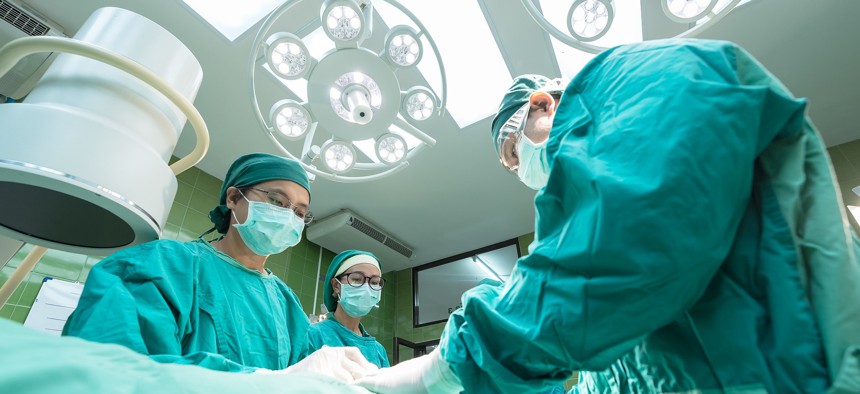Opinion
Opinion: Certified Registered Nurse Anesthetists (CRNAs) are the original anesthesia experts
Michelle Canale, president of the Florida Association of Nurse Anesthesiology, marks National CRNA Week.

Image by Sasin Tipchai from Pixabay
Every year across the United States, Certified Registered Nurse Anesthetists (CRNAs) administer more than 50 million anesthetics to patients. I am proud to count myself among the nearly 60,000 CRNAs celebrating our profession during National CRNA Week, Jan. 22-28.
The American Association of Nurse Anesthesiology (AANA) established CRNA Week in 2000 to inform the public about anesthesia safety and the benefits of receiving anesthesia care from CRNAs. During National CRNA Week, nurse anesthetists educate patients, coworkers, and others about who we are and what we do — from collaborating for transformative wins in healthcare policy to saving lives and advancing patient care.
National CRNA Week gives the healthcare community and the greater public alike the opportunity to reflect on the heroic work and unique expertise of CRNAs and future CRNAs, students enrolled in nurse anesthesiology programs, while recognizing the power and resilience of our community.
This year’s theme, “The Original Anesthesia Experts,” acknowledges our long history as the first providers of anesthesia since 1863. Nurses first provided anesthesia on the battlefields of the American Civil War. During World War I, nurse anesthetists became the predominant providers of anesthesia care to wounded soldiers on the front lines.
Today, CRNAs have full practice authority in every branch of the military and are the primary providers of anesthesia care to U.S. military personnel as the sole anesthesia providers on forward surgical teams, on the front lines, on navy ships, and for aircraft evacuation teams around the globe.
Each year, CRNAs deliver anesthesia to millions of patients, in traditional hospital surgical suites and obstetrical delivery rooms, critical access hospitals, ambulatory surgical centers, Veterans Affairs hospitals, pain management facilities, and in our nation’s military service. Personally, I provide anesthesia services in a Level II trauma center to patients from infancy through the entire lifespan, including to laboring women and those who require cesarean section.
CRNAs are highly educated, highly trained professionals. We complete eight to 10 years of healthcare and anesthesia education and more than 12,000 hours of clinical training prior to graduating with an advanced degree as an expert in the field of anesthesiology. Graduates of nurse anesthesia educational programs must pass the National Certification Examination given by the National Board of Certification and Recertification for Nurse Anesthetists. And by 2025, all nurse anesthesiology programs will be at the doctoral level.
In rural areas, CRNAs are the predominant providers of anesthesia care. Our skill and accuracy allow patients to undergo surgery safely, relieve pain, and avoid unnecessary pain. CRNAs provide care to patients where they live, forming the backbone of surgical deliveries in these rural communities. We play an essential role for expectant families, allowing first-rate delivery experiences without maternal patients having to travel great distances for obstetrics care.
As members of one of America’s most trusted professions, CRNAs have always served on the front lines of patient care from the beginning, and we continue to answer the call to help keep patients healthy and safe. Please join me in recognizing "The Original Anesthesia Experts" as we celebrate National CRNA Week.
Michelle L. Canale, DNP, CRNA, APRN, FAANA, FANA, is president of the Florida Association of Nurse Anesthesiology, serves as Assistant Dean for the Nurse Anesthesia major at the University of South Florida College of Nursing, and is a member of the City & State Florida Health Care Power 100. For more information visit www.fana.org.
NEXT STORY: Bill Cotterell: Is 'constitutional carry' good policy – or great politics?
